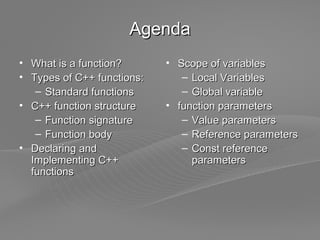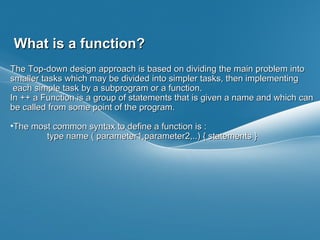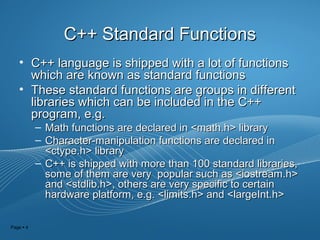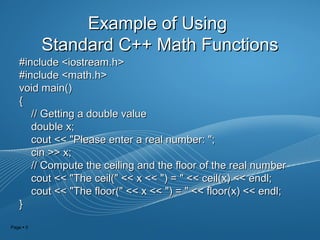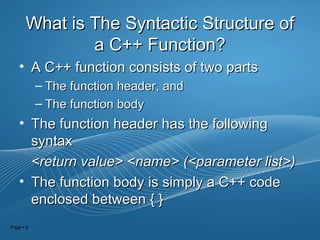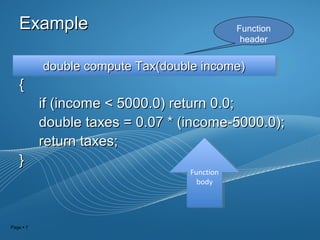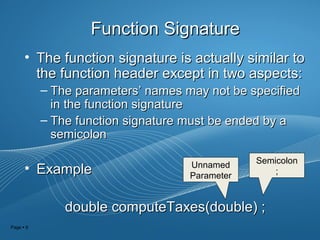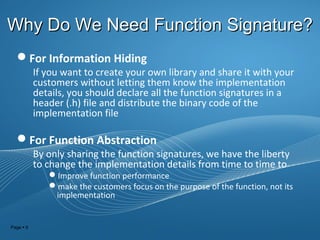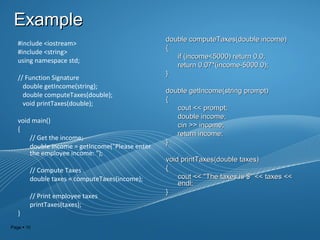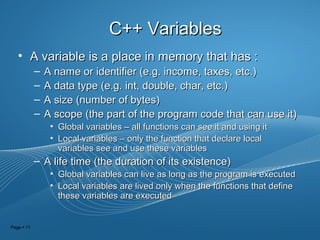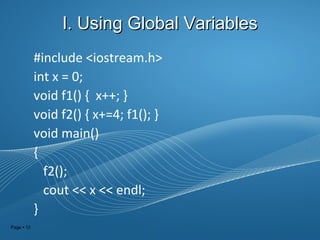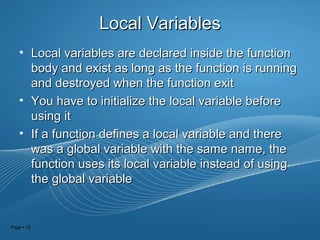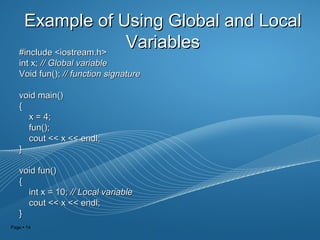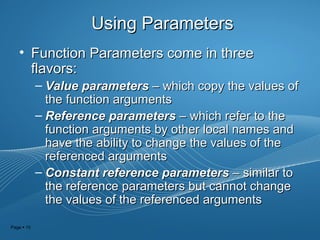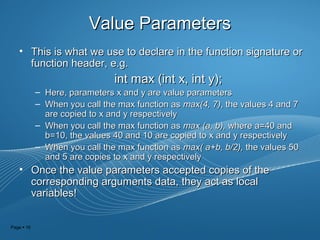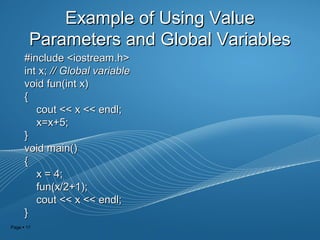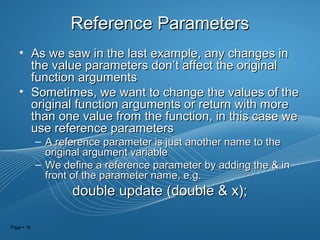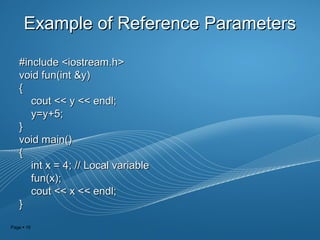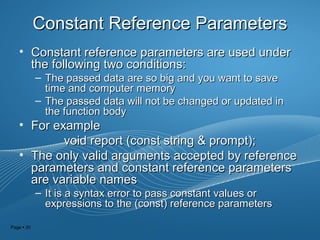This document discusses C++ functions. It defines a function as a group of statements that is given a name and can be called from within a program. The structure of a C++ function includes a header and body. The header specifies the return type, name, and parameters, while the body contains the code. Functions can use value, reference, and constant reference parameters. Variables within a function can be local or global. Standard library functions are pre-defined in headers like <iostream> and <math.h>. The document provides examples of defining, calling, and using different types of functions and parameters in C++.

